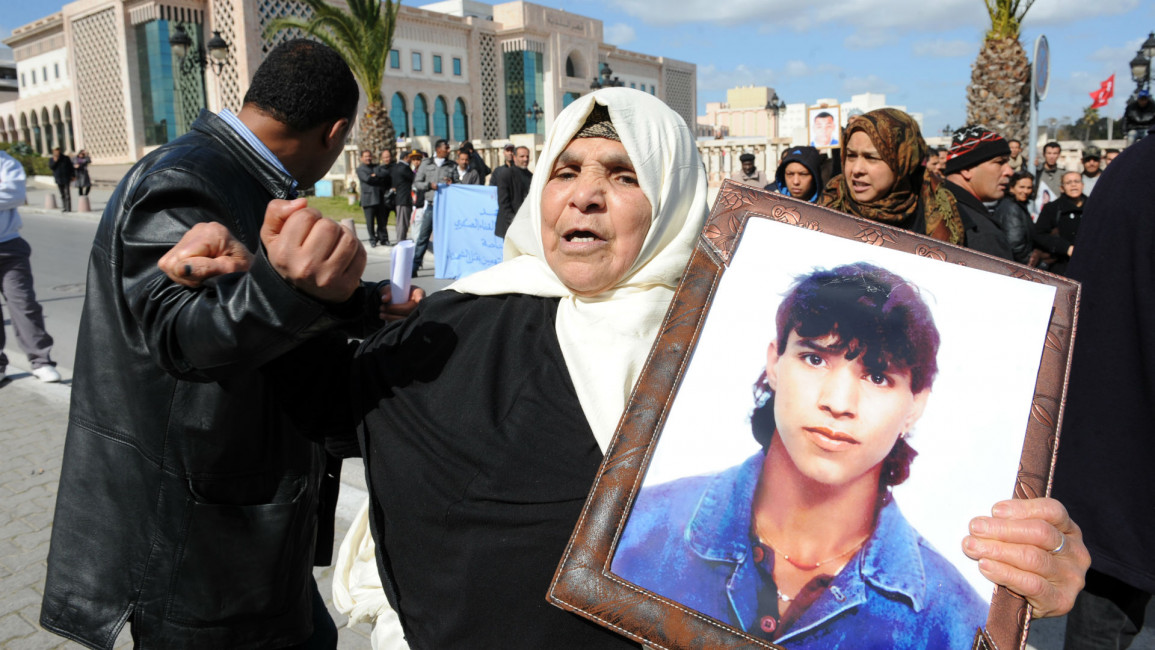
Burying Tunisia's past won't end the horrors
On 7 January, in Tunis' film theatre Le Colisée, the filmmaker Moncef Barbouch presented his film Siraa (The Conflict) for the first time. The film, which didn't make it to the Tunisian film festival Journées Cinématographiques de Carthage (JCC), tells of the struggle of several rivals from different political parties during Tunisia's dictatorship.
Fragments of life
The film shows the harsh repression Tunisia witnessed during the years
| Some believe that now is not the right time to complain because the country is facing economic difficulties. |
under former dictator Zine Ben Abidine Ben Ali's rule, when the dictator especially targeted Islamists and Leftists. The preview was attended mainly by Ennahdha supporters and the auditorium was filled with young Tunisians. Many of them had witnessed the oppression of Ben Ali's police state during their childhood because of their parents' activism. It was the first time they saw fragments of their lives played out on a big screen.
Four years after the revolution, transitional justice is still at its infancy. The 2014 Constitution has set out principles to guide it. The Authority for Truth and Dignity was created, and is led by former political activist and journalist Sihem Ben Sedrine.
This new institution officially started its work in December during the presidential elections. When asked about it, then candidate Beji Caid Essebsi, a former political executive under the Bourguiba and Ben Ali regimes, said he would reform the body to ensure more "neutrality" and "independence".
The difficulty of getting nationwide support for an institution whose purpose it is to conduct the process of recognition and reparations illustrates one of the biggest challenges for the establishment of democracy in Tunisia.
Ignoring the pain
It has become more and more common to hear political leaders, opinion makers or even citizens underplay what thousands of their co-citizens went through under Tunisia's years under dictatorship.
Some believe that now is not the right time to complain because the country is facing economic difficulties. For others, it is better not to raise issues like torture, illegal incarceration or physical and psychological harassment - better to avoid designating accountability altogether - for the sake of national unity.
By avoiding to openly discuss these abuses and designate responsibility, however, we will inevitably witness more social division in Tunisia. It will lead to people lacking confidence in the state, and cause friction between different social classes and political groups.
Collective recognition is the first step to a true and broad national reconciliation. Maybe it was too early to be realised in the first years of the revolution, but I am convinced that the Tunisian people are ready today to look evenly at the tragic system of repression that was born alongside our modern state in 1955.
Boomerang effect
Countries like Germany and Chile have shown there is no other option for Tunisia but for the people face up to their collective past. This is the only way to avoid the "boomerang effect" - if we don't apply the law of transitional justice to redress the legacies of massive human rights abuses, through judicial and non-judicial measures, then we will be condemned to suffer them again.
At the end of the film, as the movie team saluted the public to thunderous applause, Ahmed, a young student, burst into tears. A woman next to him, who happened to be a member of parliament, hugged him before weeping herself. I asked him why he was so moved. "I recalled a very painful part of my life tonight," he said.
It would be a shame for Ahmed if his suffering is negated by those who confuse victimisation and transitional justice.
Sayida Ounissi is a Tunisian member of parliament for the Ennahdha party.
Opinions expressed in this article remain those of the author and do not necessarily reflect the opinions of al-Araby al-Jadeed, its editorial board or staff.



